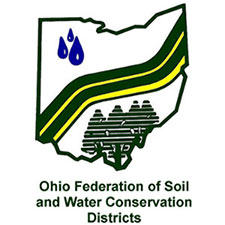Healthy Water, Healthy People Workshop
Healthy Water, Healthy People Workshop
Coordinator: Dennis Clement, Project WET State Coordinator, Ohio Environmental Protection Agency, Office of
Environmental Education
Assistance from: Lynn White, Butler SWCD; Deb Bigelow, Coshocton SWCD; Linda Pettit, Franklin SWCD
9 AM – 4:00 PM
Cost: $25.00
Lunch included: Maplestreet Station Dining Hall
Maximum Capacity: 30 people
Healthy Water, Healthy People (HWHP) is the secondary curriculum to the Ohio Environmental Protection Agency’s Project WET. HWHP will help educators address national science standards through interactive activities that interpret water quality concepts and promote diverse learning styles, with foundations in the scientific method. HWHP curriculum is intended for middle and high school audiences, however, can be adapted for other audiences and grade levels.
Participants will receive a 248-page activity guide, designed to raise the awareness and understanding of water quality topics and issues and their relationship to personal, public, and environmental health. The guide contains 25 original activities that link priority water quality topics to real-life experiences of educators and students. Participants will also receive the HWHP: Field Monitoring Guide, which yields in-depth information about ten water quality parameters. The Healthy Water Healthy People Field Monitoring Guide answers
questions about water quality testing using technical overviews, data interpretation guidelines, case studies, chemical formulas, laboratory demonstrations and much more.
Registrants should prepare for walking to a field site as well as classroom teaching. In the afternoon, you will be engaged in stream quality monitoring collecting and identifying macroinvertebrates. Please wear clothing and shoes (NO FLIP FLOPS) that you don’t mind getting wet and/or potentially dirty while in the stream. You will also briefly touch upon habitat assessment and chemical monitoring while at the stream.
Home | Project Wet
*Both guides are being donated by the Ohio EPA, Office of Environmental Education. Funds to pay for these guides are derived from penalty fines the agency assesses for violations to the Clean Air and Clean Water Acts in the state of Ohio.


